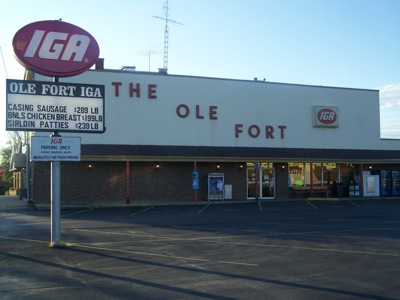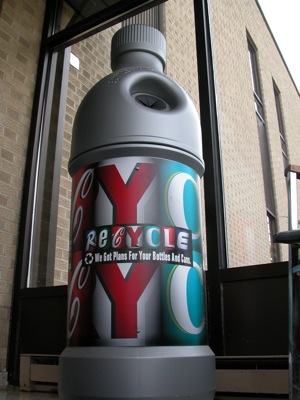Wednesday, October 8th, 2008
Area expert: It may take three years to right U.S. economy
By Janie Southard
The current economy is volatile, but it's not the first time, says a Wright State University-Lake Campus professor, who predicts the fix will not be quick.
Ron Kremer, CPA and associate professor of accountancy at Wright State University-Lake Campus, guesses it will be at least three years "before the current economic situation can wash itself out and return to normalcy."
He predicts the country will see more and more of the ripples caused by the investment banking crises.
"It can't help but trickle down to you, me and our neighbors. Some of us will feel the impact right away; for others it will drag out a little more," he said.
The scenario the professor describes is circular and an example goes like this:
In this present unrest, people are worried about their own future/money, be it income, retirement, investments, monthly payment, or all of the above. So they're going to put off buying that new car even though it's a great bargain. And it's a bargain because cars aren't selling right now.
So car dealers aren't ordering new cars. So manufacturers don't need as many new cars. So neither dealer nor manufacturer needs as many employees. Detroit almost certainly has union issues on the number of employees it must maintain. But car dealers could lay off at will.
"This is how the local economy will feel the trickle," Kremer says. "Now your neighbor, or you, is out of a job and can't make his mortgage payments. He can't afford to drive his car and operate the lawn mower. So he lets his grass grow because he has to divert any money he gets to his basic needs. So his property value goes down ... I think you can see where this is leading."
What to do to protect yourself? Spread your risk and keep some funds liquid, says the professor/farmer from New Bremen.
"You have to determine your own risk tolerance ... It's like playing the slot machines. You may decide you'll risk up to $200 just because it's fun. So you've already determined your risk. It's $200. But it's not $3,000 of your retirement. If it is the retirement, you've probably taken on too much risk," he advises.
Locally there's talk around the water cooler about putting money into a "good investment." Being a top agricultural county, farmland is a favored option. But energy investments and precious metals also are of interest.
Kremer says actually anything is a good investment as long as it has value to someone else. A bejeweled broach on auction from Elton John's personal collection is a good investment if someone else along the line would be interested in buying it.
"I would have absolutely no interest in that. I'd rather have a really nice calculator," he remarks.
By keeping some assets liquid, Kremer means to keep something that can be easily converted to cash if necessary.
"Yes, some people are probably taking all their money out of the bank. I wouldn't advise that," he says.
Having cash on hand is not safe and certainly not earning any income, however small. Commercial banks are safer because of FDIC (Federal Deposit Insurance Corporation), the government corporation that provides deposit insurance guaranteeing checking and savings accounts.
The new FDIC max of $250,000 per depositor per bank is in effect until Dec. 31, 2009. This is part of the $700 billion government bailout package, which Kremer says had to be done to avoid bigger problems.
"We're all part of the economy and we're probably in for a tough time for a while," he says.
How much does FDIC protect depositors?:
Don't worry - your account is FDIC insured up to $100,000. That statement has been printed and reprinted in every commercial bank for years in the country. A few days ago the maximum amount was increased to $250,000 until Dec. 31, 2009, as part of the $700 billion government bailout package.
In a nutshell, here's how the whole thing got started 75 years ago:
According to an Internet site, the Federal Deposit Insurance Corporation (FDIC) is a U.S. government corporation created by the Glass-Steagall Act of 1933. It provided deposit insurance guaranteeing the safety of checking and savings accounts in member banks up to $100,000 per depositor per bank.
"It came about after the banks failed during the Great Depression wiping out so many people," says Assistant Professor Ron Kremer of Wright State University-Lake Campus.
It wasn't until the savings and loan crisis in the late 1980s that FDIC was tested on large scale. It survived.
FDIC insures regular checking accounts and those that earn interest, money market deposit accounts (which are high interest savings accounts, not to be confused with money market funds, which are not insured), CDs, etc.
Accounts not insured by FDIC include stocks, bonds, mutual funds and money market funds, investments backed by the federal government such as U.S. Treasury securities, contents of safe deposit boxes, etc.
- Janie Southard




